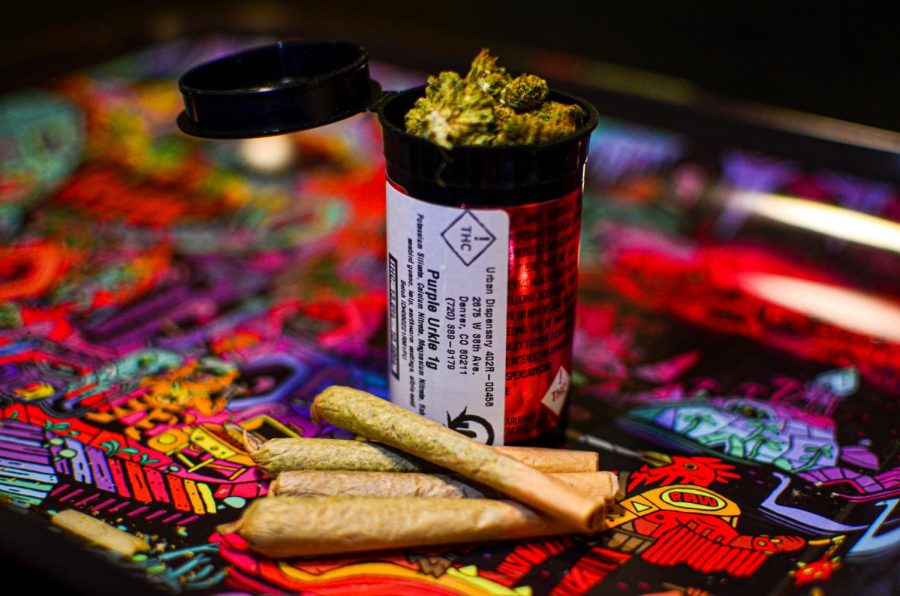UCC starts poster campaign on cannabis use disorder
Picture of medical cannabis taken by Gabrielle Korein taken on Nov. 29, 2021. The University Counseling Center’s survey found the many U.S. college students are using cannabis.
November 4, 2022
The University Counseling Center did a survey that’s nationally administered to colleges throughout the U.S. to get a sense of what substances college students are using. The survey found the number one substance college students are using is alcohol. Ranking a close second was cannabis.
Counseling center staff counselor Alysse Fuchs started a poster campaign this year on cannabis use disorder to reach students who may have questions about what the use of cannabis could mean for them.
“I don’t think cannabis use disorder is discussed a lot, and when it is discussed, the rhetoric is ‘don’t do drugs’ or ‘marijuana is a gateway drug,’” Fuchs said. “I wanted to focus on conveying what I want students to know instead of making them feel like someone is telling them not to smoke.”
Cannabis is now more accessible to young adults than previously, with weed being legalized in some states and decriminalized throughout the nation. While it is easily accessible, Fuchs wants students to be safe and aware of the effects.
“There’s a lot of folks who might express that cannabis is not addictive,” Fuchs said. “You might not think about the fact that you have cravings, or spend a lot of money to get it, or do unsafe things to get it or spend a lot of time using it. Those are all symptoms of a disorder.”
Other symptoms include withdrawal, difficulty sleeping, irritability and finding your use is impeding your ability to function in academic, social and work settings, Fuchs said.
“While cannabis might not have some of the same addictive qualities that other things do, if you’re smoking or using multiple times a day, especially with really high levels of THC in your use, you might be experiencing some impacts in your life,” Fuchs said.
A study by the University of Washington found that cannabis use and high levels of THC, the main active ingredient in cannabis, impact adolescents the most because their brains aren’t fully developed.
Dr. Nephi Stella, who did research in the study, said THC consumption can result in “impaired motivated/reward behaviors and increased repetitive and compulsive-like behaviors.”
Researchers added that THC can have some serious impacts, like memory loss, difficulty with concentration and focus, feeling hyperactive, or like users can’t control their bodies.
Having high concentrations of THC readily available increases the risks of having cannabis use disorder and experiencing those symptoms, Fuchs said.
“As a clinician, I’m not really here to judge,” Fuchs said. “I’m here to ask if this is impacting you and if this is something you want to reduce.”








Josephine Stawicki • Nov 9, 2022 at 8:53 am
What a mediocre argument. The author has been programmed to parrot false information and has done a halfway decent job of mincing the English language. So to the author:
Look up the definition of “addiction” cannabis’s addictive qualities are not present – you are simply offering the psychiatric pill pushers an opening to switch users to stronger more harmful substances which can be obtained and used legally such as Invega, Resperidol, Benzos, Opioids.
When you call an addictive personality a “disorder” – you open a door to death by hard drugs.
Talk to an herbalist who is not solely white and try to be more conscious of what you share.
Many of my friends have been prescribed cannabis and told they have a disorder because of people like you. Fuchs can Fucks off.